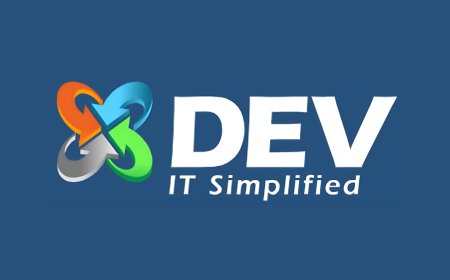The Future of Recruitment: Are Management Students Aligned with Skill & Value-Based Hiring Trends
Dr. Rupali Singh Dr.Vishal Khasgiwala In the past, a management degree was considered a golden passport to a promising career. A well-crafted resume with an MBA from a reputed institution would often guarantee a foot in the door. But today, the game has changed. As industries evolve at lightning speed, employers are no longer just looking at degrees—they're assessing skills. The shift towards skill-based hiring is redefining the employability landscape for management students, raising one urgent question: Are they ready? The management degree landscape is undergoing a radical change. Gone are the days when an MBA from a prestigious institution was a hallmark of a dream job and salary. Today, employers are prioritizing skills and ethics over degrees, demanding more from management students than just a fancy resume and a glamorous personality. As industries evolve at breakneck speed, the question on everyone's mind is: Are management students equipped with the skills, ethical, and behavioural sense to thrive in this new landscape? The Winds of Change The global workforce is undergoing a significant transformation. With automation, and artificial intelligence reshaping industries, traditional hiring practices have begun to lose relevance. Technological change through digitization, geo-economics fragmentation, economic uncertainty, demographic shifts and the green transition – individually and in combination – are among the major drivers expected to shape and transform the global labour market by 2030. Around 30% of India employers are looking to adopt skills & values based hiring practices by doing with degree requirements, compared to the global figure of 19% (The World Economic Forum’s 2025 Job Report). Closer to home, a 2023 NASSCOM report states that over 60% of Indian companies now prioritize role-specific skills over degrees during the recruitment process, particularly in the consulting, technology, and fintech sectors. Why the Shift? Employers are facing a dual challenge — performance fit & ethical. Traditional filters like degrees or institutional degree are no longer strong indicators of job-readiness. The real question hiring managers are asking now is: "Can this person do the job today with honesty & commitment?" This is where skills-based & Value education hiring becomes a game changer. Skill-based hiring allows organizations to build agile teams with individuals who can “hit the ground running.” It focuses on a person’s ability to perform job-relevant tasks, rather than just academic pedigree. Several key factors are driving this shift: Dynamic business needs: Businesses today operate in volatile markets that demand adaptability, critical thinking, and cross-functional skills. Technology disruption: Emerging tools in analytics, marketing automation, and supply chain optimization require practical know-how, often not covered in traditional curricula. Gig economy and start-ups: These sectors look for multi-skilled individuals who can take ownership and deliver results without hand-holding. A McKinsey Global Institute study (2023) estimates that by 2030, nearly 375 million workers globally may need to switch occupations or acquire new skills, a trend echoed in India as well. The Skills Employers Are Looking For According to the India Skills Report 2024, employers rate communication (39%), analytical thinking (28%), and problem-solving (21%) as the most critical skills for management roles. Are Management Students Ready? The answer is mixed. On the one hand, students from top-tier institutes with access to global case studies, internships, and simulation-based learning are relatively well-prepared. These institutions often collaborate closely with industry leaders and continuously update their curriculum. On the other hand, a large number of management students—especially from mid-tier or lesser-known institutes—often lack the exposure, mentorship, and real-time problem-solving experience required in today’s job market. A joint survey by AICTE and Wheebox (2023) found that only 47.4% of MBA graduates in India were considered employable, with major gaps in business communication, decision-making, value sets, and digital tools usage. What Needs to Change? To align with skill-based hiring & ethical, management education must undergo a paradigm shift: Curriculum Revamp: B-schools must integrate more experiential learning—case studies, simulations, capstone projects, value education and industry challenges—into their pedagogy. Stronger Industry Partnerships: Real-world internships, mentorship programs, and guest lectures by industry professionals can bridge the gap between classroom learning and corporate expectations. Assessment Beyond Exams: Institutions should evaluate students through pract

Dr. Rupali Singh Dr.Vishal Khasgiwala
In the past, a management degree was considered a golden passport to a promising career. A well-crafted resume with an MBA from a reputed institution would often guarantee a foot in the door. But today, the game has changed. As industries evolve at lightning speed, employers are no longer just looking at degrees—they're assessing skills. The shift towards skill-based hiring is redefining the employability landscape for management students, raising one urgent question: Are they ready?
The management degree landscape is undergoing a radical change. Gone are the days when an MBA from a prestigious institution was a hallmark of a dream job and salary. Today, employers are prioritizing skills and ethics over degrees, demanding more from management students than just a fancy resume and a glamorous personality. As industries evolve at breakneck speed, the question on everyone's mind is: Are management students equipped with the skills, ethical, and behavioural sense to thrive in this new landscape?
The Winds of Change
The global workforce is undergoing a significant transformation. With automation, and artificial intelligence reshaping industries, traditional hiring practices have begun to lose relevance. Technological change through digitization, geo-economics fragmentation, economic uncertainty, demographic shifts and the green transition – individually and in combination – are among the major drivers expected to shape and transform the global labour market by 2030.
Around 30% of India employers are looking to adopt skills & values based hiring practices by doing with degree requirements, compared to the global figure of 19% (The World Economic Forum’s 2025 Job Report).
Closer to home, a 2023 NASSCOM report states that over 60% of Indian companies now prioritize role-specific skills over degrees during the recruitment process, particularly in the consulting, technology, and fintech sectors.
Why the Shift?
Employers are facing a dual challenge — performance fit & ethical. Traditional filters like degrees or institutional degree are no longer strong indicators of job-readiness. The real question hiring managers are asking now is: "Can this person do the job today with honesty & commitment?" This is where skills-based & Value education hiring becomes a game changer.
Skill-based hiring allows organizations to build agile teams with individuals who can “hit the ground running.” It focuses on a person’s ability to perform job-relevant tasks, rather than just academic pedigree. Several key factors are driving this shift:
-
Dynamic business needs: Businesses today operate in volatile markets that demand adaptability, critical thinking, and cross-functional skills.
-
Technology disruption: Emerging tools in analytics, marketing automation, and supply chain optimization require practical know-how, often not covered in traditional curricula.
-
Gig economy and start-ups: These sectors look for multi-skilled individuals who can take ownership and deliver results without hand-holding.
A McKinsey Global Institute study (2023) estimates that by 2030, nearly 375 million workers globally may need to switch occupations or acquire new skills, a trend echoed in India as well.
The Skills Employers Are Looking For
According to the India Skills Report 2024, employers rate communication (39%), analytical thinking (28%), and problem-solving (21%) as the most critical skills for management roles.
Are Management Students Ready?
The answer is mixed.
On the one hand, students from top-tier institutes with access to global case studies, internships, and simulation-based learning are relatively well-prepared. These institutions often collaborate closely with industry leaders and continuously update their curriculum.
On the other hand, a large number of management students—especially from mid-tier or lesser-known institutes—often lack the exposure, mentorship, and real-time problem-solving experience required in today’s job market.
A joint survey by AICTE and Wheebox (2023) found that only 47.4% of MBA graduates in India were considered employable, with major gaps in business communication, decision-making, value sets, and digital tools usage.
What Needs to Change?
To align with skill-based hiring & ethical, management education must undergo a paradigm shift:
-
Curriculum Revamp: B-schools must integrate more experiential learning—case studies, simulations, capstone projects, value education and industry challenges—into their pedagogy.
-
Stronger Industry Partnerships: Real-world internships, mentorship programs, and guest lectures by industry professionals can bridge the gap between classroom learning and corporate expectations.
-
Assessment Beyond Exams: Institutions should evaluate students through practical assignments, team-based projects, and presentations rather than rote exams.
-
Focus on Lifelong Learning: Inculcating a mindset of continuous skill development through MOOCs, certifications, and digital platforms is essential.
-
Career Services Reimagined: Career cells need to support students in developing digital portfolios, LinkedIn profiles, and skill-based resumes tailored to specific roles.
-
Be Human: Give others the respect and kindness you’d want for yourself.
-
Ethical Behaviour: Employers today place significant value on ethical skills, recognizing integrity, accountability, and ethical decision-making as essential traits in the workplace. These qualities foster trust, support a positive organizational culture, and ensure long-term sustainability. For management graduates, demonstrating strong ethical standards is no longer optional—it is a core expectation that directly influences employability and professional growth.
Final Thoughts
Skill-based & ethical practices hiring is not a passing trend—it is the future. For management students, this means that the degree is just the beginning. What truly counts is the ability to demonstrate value through applicable skills, a proactive attitude, and real-world readiness.
The onus lies not just on students, but also on educators, institutions, and policymakers to collectively reimagine management education for an era defined by skills over titles. Because in tomorrow’s job market, it’s not about where you studied—it’s about what you can do.
Dr. Rupali Singh, Director, Learning Resource Centre at Atmiya University, Rajkot, Gujarat (India). Email: director.lrc@atmiyauni.ac.in; dr.rupalisingh9999@gmail.com
Dr. Vishal Khasgiwala, Professor and Dean, Faculty of Business & Commerce of Atmiya University, Rajkot, Gujarat (India). Email: dean.fobc@atmiyauni.ac.in
What's Your Reaction?













































